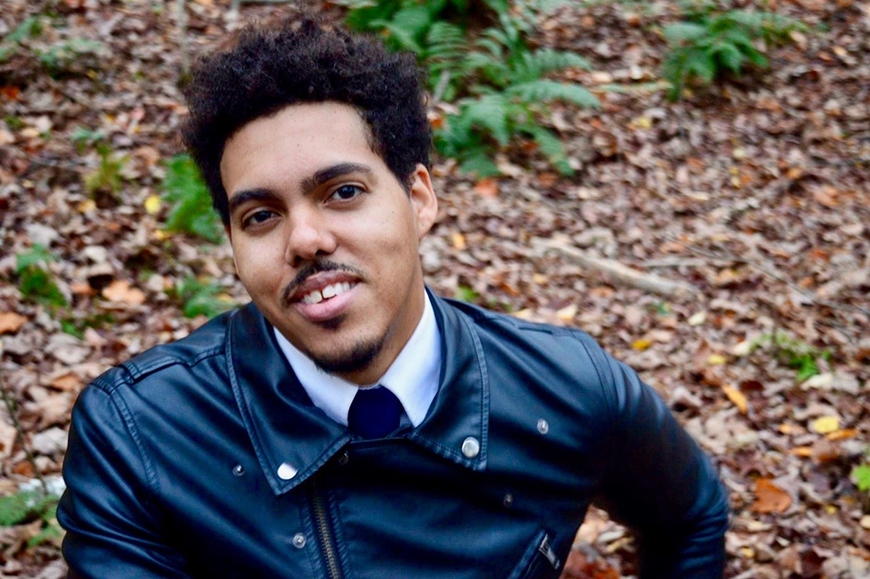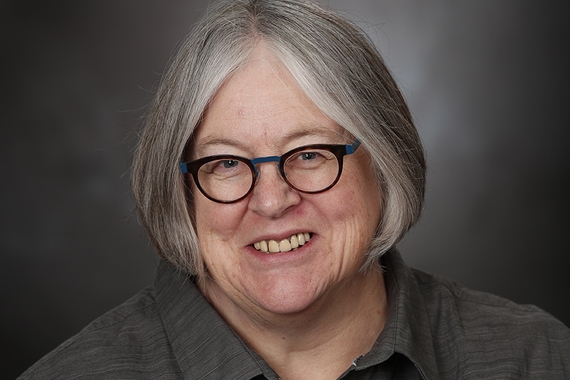Alum Is National Endowment for the Arts Fellow
Since graduation, Jonathan Escoffery (MFA 2014) has received several awards and fellowships for his fiction, including a 2020 Helene Wurlitzer Foundation of New Mexico grant and a 2019 Aspen Words Emerging Writer Fellowship. His work has been published in a wide range of literary journals, and his story “In Flux” won Passages North’s Waasnode Fiction Prize and was cited as a Distinguished Story in The Best American Short Stories 2018. But so far no recognition compares with this year's National Endowment for the Arts (Prose) Literature Fellowship. Escoffery and 35 other writers (out of nearly 1,700 applicants) received $25,000 and the prestige of joining a list of past recipients that includes Gwendolyn Brooks, Raymond Carver, Eudora Welty, Allen Ginsberg, Oscar Hijuelos, Maxine Hong Kingston, and Alice Walker. As Escoffery, now a Creative Writing & Literature PhD candidate at the University of Southern California, posted on Twitter: "I’m incredibly honored. . . . Continued affirmation that one well-told story can change your life."
"I couldn't have written a
significant portion of my
current project had I never
taken those research trips
[while at Minnesota MFA]."
- Jonathan Escoffery
What are your plans for the NEA fellowship?
I'll be vastly reducing my freelance editing load in order to clear more headspace and time for writing. Being financially strapped, or even just the threat of it, takes up so much headspace, and the promise of the award money has already made it easier to dive deep into the work and focus. I'll likely plan some research trips too.
What was your favorite part of the Minnesota MFA program and why?
Hard to say, but one standout would be the opportunities to secure summer funding through research fellowships, which I was fortunate enough to get, and which I used to travel throughout Jamaica and Europe. I couldn't have written a significant portion of my current project had I never taken these research trips, plus they expanded my idea(s) of the world.
What was the most useful thing you learned in the program?
Learning the language of craft, so that I can teach the mechanics and conventions of fiction, was very useful. Learning to teach in general has been very valuable, and I've put this practice to good use since graduating. Also, UMN is where I picked up tips on how to write a compelling research proposal, which transfers well to writing personal statements/statements of purpose, which I continually use to secure funding and other resources.
What is the most useful thing you’ve learned since?
I've learned to trust my gut in terms of what constitutes good writing, and in terms of which opportunities I want to go after. "Gut" here may actually mean years of training, an understanding of the specific traditions and conversations I want to contribute to and build upon, and a (growing) track record.
Equally as important, I learned to surround myself with driven people who are generous with information, and to replace the word networking with making meaningful friendships with people similarly invested in contemporary literature.
Also, I learned how big and small the writing world is. It's easy to believe your writing world is the writing world, and that what's happening in your circle or graduate program or genre constitutes the boundaries of what's possible, which is limiting and can breed unhealthy competitive tendencies. But it's also a small enough world that you continue to cross paths with people in ever-shifting dynamics, so be kind.
Many of our writer alums are active on Twitter, including you (great to see all the NEA award congrats from other MFA alums!). Recommendations of other writers to follow?
Author Mat Johnson / @mat_johnson often offers a humorous lens through which to digest both the writer's life and our current political moment.
Photo: Colwill Brown



